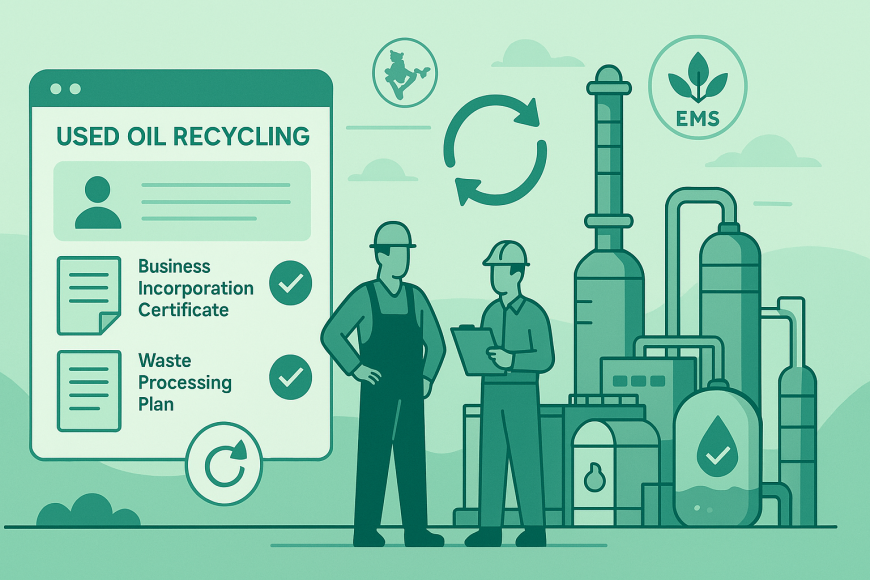Used Oil Recycling Plant Setup in India | License & Compliance Guide
Start your used oil recycling plant setup in India with expert guidance on compliance, licensing, and waste management rules. Ensure safe processing and legal operations with CPCB/SPCB approvals.

Setting up a used oil recycling plant is a strategic and environmentally responsible move for businesses involved in the collection, transportation, or disposal of used industrial oils. This process not only supports sustainable waste management but also aligns with legal requirements laid down by the Central Pollution Control Board (CPCB) and State Pollution Control Boards (SPCBs). A proper used oil recycling plant setup ensures that hazardous waste is processed safely, reducing environmental risks and promoting circular resource use.
The journey toward establishing a used oil recycling plant begins with understanding the regulatory framework governing hazardous waste management in India. Used oil, classified as hazardous under the Hazardous and Other Wastes (Management and Transboundary Movement) Rules, 2016, must be handled, stored, and recycled following strict safety and environmental protocols. Therefore, businesses must obtain various authorizations and comply with licensing requirements before commencing operations.
The setup process requires submission of essential documentation, including business incorporation certificates, detailed project reports (DPRs), land ownership or lease documents, waste processing plans, and environmental management systems. These documents must be submitted to the concerned State Pollution Control Board or the Ministry of Environment, Forest and Climate Change (MoEF&CC), depending on the scale of operations. Additionally, clearances such as Consent to Establish (CTE), Environmental Clearance (EC), and Hazardous Waste Authorization are mandatory prior to commissioning the plant.
With the evolution of regulatory systems and digital governance, the application process for used oil recycling plant setup can now be initiated online through official state or central portals. These platforms enable applicants to upload required documents, track application progress, and receive approvals in a more streamlined and transparent manner. Digital compliance tools have significantly reduced the time and administrative burden involved in setting up such facilities.
After submission, the application is reviewed by authorities, who may conduct site inspections and technical evaluations to assess environmental safeguards and process viability. Once satisfied with the setup and documentation, regulatory bodies grant the necessary approvals, allowing the recycling plant to operate legally and in full compliance with environmental laws.
Operational compliance is not a one-time task. Businesses running a used oil recycling plant must continue to follow waste management regulations, maintain proper waste records, and submit annual returns to regulatory bodies. Regular inspections may be conducted, and any violations can lead to fines, suspension of operations, or cancellation of licenses.
In conclusion, the used oil recycling plant setup is more than just an industrial initiative — it is a commitment to environmental sustainability and legal compliance. By leveraging digital application systems and adhering to all environmental norms, businesses can establish a fully compliant recycling unit that not only minimizes ecological impact but also creates opportunities for economic growth through resource recovery. Through responsible recycling, companies play a crucial role in transforming waste oil into a valuable resource and contributing to a cleaner and greener industrial ecosystem.
